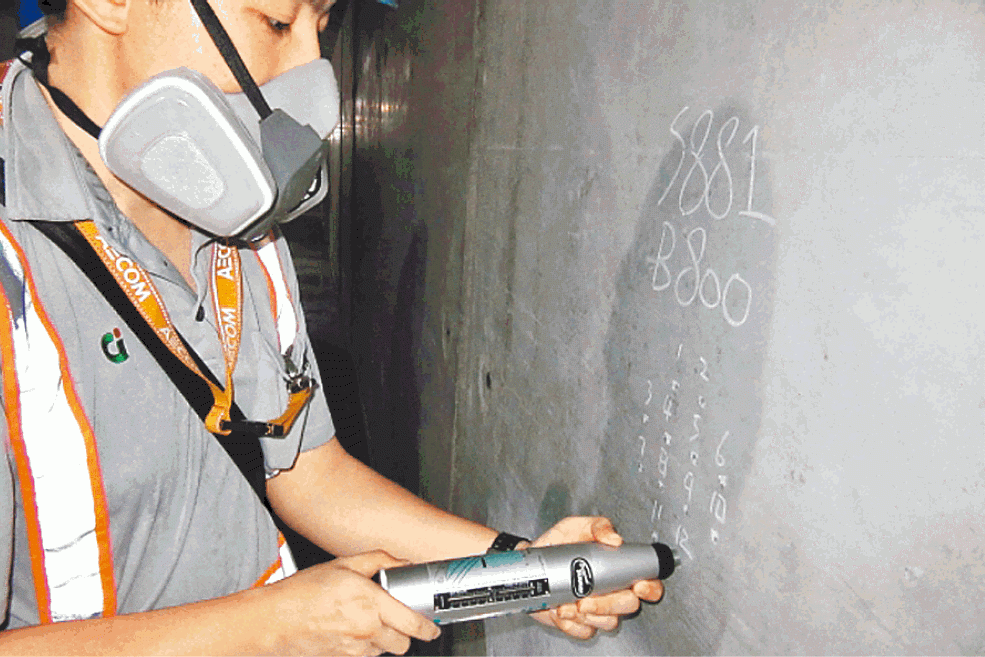Chief Executive Leung Chun-ying has said that recent government tests on concrete at the Hong Kong–Zhuhai–Macao Bridge have shown no problems, following revelations over previous falsified test results.
The Independent Commission Against Corruption arrested 21 people from contractor Jacobs China – a US firm – last month over the alleged fraud. They were accused of altering the time stamp on the testing machines to cover up irregularities, and switching samples to meet strength requirements. The instances of malpractice may have begun as early as 2015.
It was revealed on Monday that tests from 210 concrete samples were found to have been falsified, out of 170,000 samples analysed by the government. But the authorities did not reveal where all of the samples were taken, stating only that they were obtained from the Hong Kong section of the bridge.

After reviewing 203 of the falsified samples, the Director of Highways Daniel Chung Kum-wah said at a Legislative Council session on Monday that 159 were related to the bridge’s structural sites, and 44 were unrelated. Chung said 13 Schmidt hammer tests – a recognised method to measure concrete strength – on the structural sites and they all passed.
Meanwhile, 45 samples were located underground or below sea level. They could not be examined using the Schmidt hammer test, but five per cent of the piles involved were taken for testing when they were built, Chung said.
The government also said that, as of last Saturday, two thirds of the 3,000 key structural locations of the works involved in the incident have been tested and they all passed.

‘Great importance’
When asked about the falsified results, Leung on Tuesday insisted that all of the Schmidt hammer tests made on site showed no signs of problems.
“The government attaches great importance to the structural safety of the bridge – this is the work we have to do right now,” he said ahead of the weekly Executive Council meeting.
The Secretary for Transport and Housing Anthony Cheung Bing-leung said on Monday that he only knew of the incident last month when the anti-graft agency took action, ten months after the Civil Engineering and Development Department (CEDD) detected some irregularities in the samples in July 2016.
Asked about the delay in informing Cheung, Leung said: “As for the issue of this testing contractor and the internal issue of the government, we will also attach great importance and take follow up action.”

Jacobs China was awarded contracts to run two government labs. Of which, the Siu Ho Wan lab was mainly responsible for the bridge tests.
Last week, the Development Bureau decided to suspend Jacobs from tendering for any architectural and engineering consultancy work handed out by two of the government’s selection boards for one year.
Jacobs was also responsible for some other government projects. Whilst the head of the CEDD refused to disclose the full list on Monday, he said sample examination reports have been analysed and no problems were found.
